Difference between revisions of "Leather care"
| Line 381: | Line 381: | ||
* [[Shoe care]] | * [[Shoe care]] | ||
* [[Leather cleaner]] | * [[Leather cleaner]] | ||
| − | * [[How to care imitation leather]] | + | * [[How to care for imitation leather]] |
Revision as of 13:23, 4 April 2017
From the time humans started using leather, various products have been used to increase its lifespan. Historically, the task of a leather conditioner was to make them waterproof mainly due to adverse weather conditions and this was done by applying oils and greases. This basic form of care later extended to polishing shoes or belts, straps, helmets and armour to bring the shine and gloss and keep them looking as new as possible.
Contents
What is leather care?
Most people are aware that leather shoes and saddles need a little care from time to time. But they usually lack the knowledge of how to look after a particular type of leather and they don`t know that car leather, furniture leather and garment leather also needs protection to prevent aging, wear and soiling.
The aim of good leather care and maintenance practice is to preserve the condition of a given leather item for as long as possible. The care need of each leather product depends on various factors. It depends on how a leather was produced (type of leather), how it was processed (shoe, clothing, sofa, car etc.), how it is stressed by use, on how old it is and if sunlight and other aspects influenced it.
Depending on the type of leather and type of use, leather requires oils and fats to keep it soft and supple and / or UV-filter, so it does not fade and / or friction modifiers, so it does not wear out as quickly, and / or waterproofing, to avoid water stains on leather.
For a lot of consumers also cleaning the leather with a leather cleaner is part of the leather care. The duty of a leather cleaner is to remove all kind of dirt and stains.
When it comes to leather cleaners and leather protectors, the market offers a wide variety of products, usually leaving the customers confused about which is the correct product for them.
In a shoe, you put more emphasis in maintaining the gloss of leather and keeping it water resistant. But that does not fit for new car leather and also not for upholstery leather, which are usually matt and should remain so. Here the focus of leather care must be on the preservation of the matt finish and to protect against abrasion and against stains and discolouration (especially in bright or light coloured leathers). An old car leather however may need more of a grease or oil based product to keep or make the leather soft. It may also need UV protection against damage from the sun. A sheepskin coat has different care needs as a patent leather bag or a horse saddle.
The following guide intends to help customers to be able to choose the most suitable leather care products.
Home remedies
Over the years, we have come across many suggestions and substitutes for professional leather care products. Body milk, fresh cow milk, castor oil, bananas or potato peel and olive oil. These secret recipes and products do not fit to leather. In earlier days, vegetable tanned leather used for saddles and shoes were very thick and sturdy. This could be greased with almost anything. The waterproof protection provided by these grease based products could be considered as sufficient. Today’s leather is thin, soft and tanned different and you need coordinated care. In stores, there are a variety of maintenance products from different manufacturers. In doubt, they are better than any secret recipe. Do not underestimate the destructive effect of fats and other liquids, which become rancid in leather.
Leather care in the shops
On the market, there are many different leather care products in a variety of price ranges. Which is the right one for your leather? Customers often say that they prefer to use no care products mainly for fear of applying the wrong product. But this is the completely wrong way. A "cheap" care product is always better than no care, when a leather is dry and risks to get brittle.
The effectiveness of a cleaning product can always be tested on a small area in case of any doubts.
New leather is rarely maintained. The trade doesn`t wish to mention the need. New leather has no risk of drying out and becoming brittle, but stains and discolouration in bright coloured leathers are a risk, but also signs of wear. A new generation of care products is designed to prevent damages and soiling on new leather.
If it is particularly valuable leather, you should use higher-quality care products. Synthetic oils in higher quality products are not rancid and are not a breeding ground for bacteria and mold. Care products with synthetic oils, fats and additional UV filters are usually more expensive, but also much more effective. They significantly increase the lifespan of valuable leather.
Check the smell or fragrance of the product. There are many maintenance products with a strong odour, which may be OK for shoe care. But on a jacket or bag or on leather furniture and vehicle leathers this might be unpleasant.
Damages caused by leather care
The leather care product must be selected properly according to the type and the relevant condition of leather. A leather grease used on a nubuck generates stains and a waterproofing product is useless on a car leather because it's anyway waterproof by the protective finish. Too strong leather cleaner can clean some types of delicate leather, but stains would remain or increase on porous leather. Therefore, the matching of the correct cleaning and maintenance to the type of leather is very important.
The matching leather cleaner and care product must be chosen for each type of leather to avoid worsening it.
Leather is chosen from designers. Sometimes leather is chosen without checking the behaviour in everyday use. A normal cleaning and care product can then soil the leather. It should be a routine to test all leathers on cleaning and care behaviour and to give recommendation how to care. But fashion is a fast running business and such service sometimes is skipped. The customer later suffers when using normal cleaning and care products for leather and damage it this way.
Some examples:
- Sometimes waterproofing products cause stains on leather shoes or bag leather. The consumer thinks, that the waterproofing product is the problem. But such products are all similar and work on most types of leather and the producers of the leather goods know that this is a typical care treatment. But when they don't test some basic products before, such problems arise.
- A complete generation of PU leather (foil-coated split leather) was sensitive to water and oil. The coating dissolved when exposed to humidity and oils. A contact with skin and hair always leads to oil of fat on surfaces. Also sweat is normal and water based. Customers who had this damage thought the sofa just needed to be cleaned and cared more often. Doing so only increased the damage because most products are water based and most care products contain oils of fats.
- Dry-cleaning leather clothing a lot of damages can happen. Applications get lost, glued parts open because of the adhesive dissolves, colour bleeds out or surface coatings dissolve. If of each production some samples would be dry cleaned to test the resistance, customers must not have such experiences.
- In 2013 manufacturers of shoe care products received significantly higher number of complaints by consumers due to the use of standard shoe polish. Aqueous, mild cleaners and normal leather care products dissolved the finish and left irreparable damages. This phenomenon is well known in two-tone leather in the furniture sector. In such cases, cleaning even with a damp cloth causes similar damage, which makes clear that care product manufacturers are not to blame. A simple shoe care test didn't happen.
Lack of leather quality or a product defect? Unfortunately, it is not always clear.
The consumer is often left alone with his problem. The producer states "Incorrect care or cleaning" and the manufacturers of care products in turn blames it back on the leather manufacturers.
Different leather care products
- Leather lotion: A leather lotion is usually a low-viscosity emulsion of water and fats / oils / wax and can be easily applied to the leather with a soft cloth. A lotion can additionally have UV filters against fading and antioxidants to keep the leather from aging too fast.
- Leather Cream: Compared to leather milk, the leather cream has a higher viscosity. However, it is also an emulsion. Its effect is comparable to the maintenance with leather lotion. A leather lotion penetrates deeper into the leather structure as it is thinner. A leather cream is typical for shoes, as the product should remain on the surface to waterproof and to create the wished gloss.
- Dubbin: Fats or grease based products (like Vaseline or based on animal fats) are especially used for shoe care or saddle care. They provide strong water-repellent (hydrophobic) and moisturising effect. However, they are only suitable for pigmented or surface coloured leather. If used on porous leather (suede, nubuck, aniline leather), they can cause stains that may not be possible to remove. Depending on the temperature, they are available either as a hard wax or slightly creamy/gel. Due to strong moisturising properties, leather fats are recommended rather for outdoor leather and only partly in the vehicle or the furniture sector especially for older and dry leather with gloss.
- Leather oil: Hardened and dry leather needs a stronger dose of moistening. Leather oil is liquid and therefore penetrates well into leather. But also, be careful with porous leather. Oils also cause stains on such leather types.
- Waterproofing: Frequently waterproofing is assimilated with "Leather Care". But waterproofing products only offer one function: To increase the water resistance. Therefore, an only waterproofing protection can never be assumed to be sufficient on the long run. The leather would otherwise over time still be dry and brittle.
Waterproofing is never a complete protection for sensitive leathers!
- Saddle soap: Saddle soap is an alkaline soap, which has been used historically for cleaning saddles, leather straps and similar articles. Alkaline soaps are not ideal for the cleaning of leather. Leather is produced at the tannery in the acidic range. Modern cleaners take this into consideration and are ideally not strongly alkaline. Saddle soap is available in liquid and solid form.
- Leather Sealant: A leather sealant or leather shield is usually a leather care product, which protects the upper layer of paint or pigment. It protects leather from negative external influences like abrasion or discoloration and dye transfer on leather caused by clothing. A sealant is usually water-based and free of oils, fats or waxes and therefore intended more for newer leather, which still have no damage but are intensively used.
- For shoe care products see main article Shoe care.
High-quality shoe care products.
Leather fat or leather oil?
It is often discussed whether fat or oil is the best care for leather. It is often argued that a dubbin makes the leather unbreathable. Conversely, it is argued that leather oil soaks leather too oily.
A dubbin without overdoing resins and waxes, hardly affects the breathability of shoe leather or a motorcycle suit and a sparingly applied leather oil does not make leather too oily.
In an old, dry leather, it makes sense to use leather oil. This is liquid and penetrates deep into the fibres which are too dry. In new leather, it does not matter whether an oil or fat is applied. It just should be applied sparingly. In such cases, it is up to the customer, which product to use.
Leather care test
Looking at the leather care test results of recent years, the test results constantly changes. This is not due to changes in the products but to the test set-up and to the tested leathers. Leather is available in various types and conditions and there are different areas of application. Leather may be matt or glossy, soft or hard, pigmented or porous. There are endless variants and qualities. Leather can be old or new, damaged or undamaged, it can be used indoors or only in good weather and it can be permanently exposed to humidity. A test of leather care products would have to consider all parameters. Mostly only one type of leather is tested and with few quality features. Therefore, the test results always differ. Depending on the type of leather, the condition of the leather, the use of the leather and the test parameters, the results of the leather tests are always changing. The same applies to tests of leather cleaners.
Test winner: Elephant Leather Preserver because of right gloss.
Basically, there are hardly any bad leather care products on the market. Negative test results are only found in eco-tests, which set their own limit values. This way, the important aspect of life extension of leather is usually ignored. As result, a tested leather care product might be well in the eco-test, but does not have the life-prolonging effect and vice versa. Comprehensive tests are complex and time-consuming and are therefore not made by eco-testers.
In the end, the product has to fit to your own leather. Therefore, the right research and advice is the key to the best leather preservation!
Ecological leather care - Eco leather care - Bio leather care
See main article Ecological leather care - Eco leather care.
Basic rules when dealing with leather
- Basic rules when dealing with leather furniture
- Basic rules when dealing with car leather
- Basic rules when dealing with leather clothing
- Basic rules when dealing with leather shoes
- Basic rules when dealing with leather bags
The right advice for leather care
After many years in which COLOURLOCK has dealt with the development of leather care products, it is clear that there is no best leather care product for all leathers. Each leather is differently coloured, sealed and used differently. Some leather is smooth, others rough, some glossy and others are dull. Leather can be new or very old, valuable or cheap.
Ultimately, competent advice is most important. There is not one best leather cleaning and leather care product, but only the right care product for your leather or for a special leather problem. COLOURLOCK has passed many years of experience with the care and restoration of leather and tries to provide best information. COLOURLOCK helps to get the best out of your leather! Use this service in case of leather questions to get best results.
Videos about cleaning, repairing and caring of leather
Leather cleaning, colour refreshing and leather care of car leather
Leather cleaning, colour refreshing and leather care of furniture leather and leather bags
Instructions for leather cleaning, leather repairs and leather care
![]() -> In German: www.lederzentrum.de
-> In German: www.lederzentrum.de
![]() -> Rest of the world: partners worldwide
-> Rest of the world: partners worldwide
Areas of use of leather care
How to clean and care car leather
![]() -> COLOURLOCK - CLEANING AND CARE OF CAR LEATHER
-> COLOURLOCK - CLEANING AND CARE OF CAR LEATHER
![]() -> CLEANING AND MAINTENANCE OF CAR LEATHER (DETAILED)
-> CLEANING AND MAINTENANCE OF CAR LEATHER (DETAILED)
![]() -> https://www.colourlock.com/tip/car-leather/repairing-colour-damages.html COLOURLOCK - REPAIRING COLOUR DAMAGES ON CAR LEATHER]
-> https://www.colourlock.com/tip/car-leather/repairing-colour-damages.html COLOURLOCK - REPAIRING COLOUR DAMAGES ON CAR LEATHER]
![]() -> COLOURLOCK - CLEANING, CARE AND COLOURING OF STEERING WHEELS
-> COLOURLOCK - CLEANING, CARE AND COLOURING OF STEERING WHEELS
![]() -> COLOURLOCK - THE REPAIR OF TEARS AND HOLES IN NAPPA LEATHER WITH FLUID LEATHER
-> COLOURLOCK - THE REPAIR OF TEARS AND HOLES IN NAPPA LEATHER WITH FLUID LEATHER
![]() -> COLOURLOCK - THE HANDLING OF BRITTLE LEATHER
-> COLOURLOCK - THE HANDLING OF BRITTLE LEATHER
![]() -> COLOURLOCK - HOW TO REMOVE TEXTILE DISCOLOURATION
-> COLOURLOCK - HOW TO REMOVE TEXTILE DISCOLOURATION
![]() -> COLOURLOCK - CLEANING AND CARE OF ALCANTARA AND SIMILAR FABRICS
-> COLOURLOCK - CLEANING AND CARE OF ALCANTARA AND SIMILAR FABRICS
![]() -> COLOURLOCK - THE GLOSS OF LEATHER
-> COLOURLOCK - THE GLOSS OF LEATHER
![]() -> COLOURLOCK - THE TREATMENT OF MOLDY LEATHER
-> COLOURLOCK - THE TREATMENT OF MOLDY LEATHER
![]() -> CLEANING AND CARE OF IMITATION LEATHER AND PLASTIC OF CAR INTERIORS
-> CLEANING AND CARE OF IMITATION LEATHER AND PLASTIC OF CAR INTERIORS
![]() -> COLOURLOCK - PRESSURE MARKS AND CREASES IN LEATHER
-> COLOURLOCK - PRESSURE MARKS AND CREASES IN LEATHER
![]() -> COLOURLOCK - SQUEAKS AND DISTURBING SOUNDS
-> COLOURLOCK - SQUEAKS AND DISTURBING SOUNDS
![]() -> COLOURLOCK - THE PROFESSIONAL COLOURING OF PIGMENTED NAPPA LEATHER
-> COLOURLOCK - THE PROFESSIONAL COLOURING OF PIGMENTED NAPPA LEATHER
![]() -> COLOURLOCK - THE TREATMENT OF HARDENED LEATHER
-> COLOURLOCK - THE TREATMENT OF HARDENED LEATHER
![]() -> COLOURLOCK - PERFORATED LEATHER
-> COLOURLOCK - PERFORATED LEATHER
![]() -> COLOURLOCK - CLEANING AND MAINTENANCE OF CAR LEATHER
-> COLOURLOCK - CLEANING AND MAINTENANCE OF CAR LEATHER
How to clean and care furniture leather
![]() -> COLOURLOCK - TREATMENT OF FURNITURE LEATHER
-> COLOURLOCK - TREATMENT OF FURNITURE LEATHER
![]() -> COLOURLOCK - THE REPAIR OF TEARS AND HOLES IN NAPPA LEATHER WITH FLUID LEATHER
-> COLOURLOCK - THE REPAIR OF TEARS AND HOLES IN NAPPA LEATHER WITH FLUID LEATHER
![]() -> COLOURLOCK - CLEANING AND CARE OF ANILINE LEATHER
-> COLOURLOCK - CLEANING AND CARE OF ANILINE LEATHER
![]() -> COLOURLOCK - GREASY STAINS ON HEAD OR ARMREST AREAS
-> COLOURLOCK - GREASY STAINS ON HEAD OR ARMREST AREAS
![]() -> COLOURLOCK - WATER MARKS ON ANILINE
-> COLOURLOCK - WATER MARKS ON ANILINE
![]() -> COLOURLOCK - CLEANING AND CARE OF NUBUCK AND SUEDE
-> COLOURLOCK - CLEANING AND CARE OF NUBUCK AND SUEDE
![]() -> COLOURLOCK - PU LEATHER - BICAST LEATHER
-> COLOURLOCK - PU LEATHER - BICAST LEATHER
![]() -> COLOURLOCK - THE TREATMENT OF ANTIQUE LEATHER / CHESTERFIELD LEATHER
-> COLOURLOCK - THE TREATMENT OF ANTIQUE LEATHER / CHESTERFIELD LEATHER
![]() -> COLOURLOCK - CLEANING AND CARE OF ALCANTARA AND SIMILAR FABRICS
-> COLOURLOCK - CLEANING AND CARE OF ALCANTARA AND SIMILAR FABRICS
![]() -> COLOURLOCK - CLEANING AND CARE OF IMITATION LEATHER FURNITURE
-> COLOURLOCK - CLEANING AND CARE OF IMITATION LEATHER FURNITURE
![]() -> COLOURLOCK - THE TREATMENT OF CATS SCRATCHES IN LEATHER
-> COLOURLOCK - THE TREATMENT OF CATS SCRATCHES IN LEATHER
![]() -> COLOURLOCK - THE HANDLING OF BRITTLE LEATHER
-> COLOURLOCK - THE HANDLING OF BRITTLE LEATHER
![]() -> COLOURLOCK - HOW TO REMOVE TEXTILE DISCOLOURATION
-> COLOURLOCK - HOW TO REMOVE TEXTILE DISCOLOURATION
![]() -> COLOURLOCK - CLEANING AND CARE OF PULL-UP, WAXED AND OILED LEATHER
-> COLOURLOCK - CLEANING AND CARE OF PULL-UP, WAXED AND OILED LEATHER
![]() -> COLOURLOCK - SQUEAKS AND DISTURBING SOUNDS
-> COLOURLOCK - SQUEAKS AND DISTURBING SOUNDS
![]() -> COLOURLOCK - REMOVAL OF BALLPOINT PEN AND OTHER PEN MARKS
-> COLOURLOCK - REMOVAL OF BALLPOINT PEN AND OTHER PEN MARKS
Comparison of leather quality and sensitivity / ease of maintenance.
aniline leather - semi-aniline - pigmented leather - corrected grain - laminated leather
How to clean and care leather clothing
![]() -> COLOURLOCK - CLEANING AND CARE OF LEATHER CLOTHING
-> COLOURLOCK - CLEANING AND CARE OF LEATHER CLOTHING
How to clean and care leather shoes and leather boots
![]() -> COLOURLOCK - CLEANING AND CARE OF LEATHER SHOES AND LEATHER BOOTS
-> COLOURLOCK - CLEANING AND CARE OF LEATHER SHOES AND LEATHER BOOTS
![]() -> COLOURLOCK - THE RECOLOURING OF SHOES, STEERING WHEELS, BELTS AND SADDLE BAGS WITH SPRAY COLOUR
-> COLOURLOCK - THE RECOLOURING OF SHOES, STEERING WHEELS, BELTS AND SADDLE BAGS WITH SPRAY COLOUR
How to clean and care leather bags, leather cases and leather belts
![]() -> COLOURLOCK - TREATMENT OF LEATHER CASES AND BAGS
-> COLOURLOCK - TREATMENT OF LEATHER CASES AND BAGS
![]() -> COLOURLOCK - CLEANING AND MAINTENANCE OF LEATHER BELTS
-> COLOURLOCK - CLEANING AND MAINTENANCE OF LEATHER BELTS
How to clean and care different types of leather
How to clean and care pigmented leather
![]() -> COLOURLOCK - TREATMENT OF FURNITURE LEATHER
-> COLOURLOCK - TREATMENT OF FURNITURE LEATHER
![]() -> COLOURLOCK - THE TREATMENT OF CATS SCRATCHES IN LEATHER
-> COLOURLOCK - THE TREATMENT OF CATS SCRATCHES IN LEATHER
![]() -> COLOURLOCK - THE REPAIR OF TEARS AND HOLES IN NAPPA LEATHER WITH FLUID LEATHER
-> COLOURLOCK - THE REPAIR OF TEARS AND HOLES IN NAPPA LEATHER WITH FLUID LEATHER
![]() -> COLOURLOCK - THE HANDLING OF BRITTLE LEATHER
-> COLOURLOCK - THE HANDLING OF BRITTLE LEATHER
![]() -> COLOURLOCK - HOW TO REMOVE TEXTILE DISCOLOURATION
-> COLOURLOCK - HOW TO REMOVE TEXTILE DISCOLOURATION
![]() -> COLOURLOCK - SQUEAKS AND DISTURBING SOUNDS
-> COLOURLOCK - SQUEAKS AND DISTURBING SOUNDS
![]() -> COLOURLOCK - THE TREATMENT OF MOLDY LEATHER
-> COLOURLOCK - THE TREATMENT OF MOLDY LEATHER
![]() -> COLOURLOCK - REMOVAL OF BALLPOINT PEN AND OTHER PEN MARKS
-> COLOURLOCK - REMOVAL OF BALLPOINT PEN AND OTHER PEN MARKS
![]() -> COLOURLOCK - PRESSURE MARKS AND CREASES IN LEATHER
-> COLOURLOCK - PRESSURE MARKS AND CREASES IN LEATHER
![]() -> COLOURLOCK - THE TREATMENT OF ANTIQUE LEATHER / CHESTERFIELD LEATHER
-> COLOURLOCK - THE TREATMENT OF ANTIQUE LEATHER / CHESTERFIELD LEATHER
![]() -> COLOlURLOCK - CLEANING AND CARE OF CAR LEATHER
-> COLOlURLOCK - CLEANING AND CARE OF CAR LEATHER
![]() -> COLOURLOCK - REPAIRING COLOUR DAMAGES ON CAR LEATHER
-> COLOURLOCK - REPAIRING COLOUR DAMAGES ON CAR LEATHER
![]() -> COLOURLOCK - CLEANING, CARE AND COLOURING OF STEERING WHEELS
-> COLOURLOCK - CLEANING, CARE AND COLOURING OF STEERING WHEELS
![]() -> COLOURLOCK - THE PROFESSIONAL COLOURING OF PIGMENTED NAPPA LEATHER
-> COLOURLOCK - THE PROFESSIONAL COLOURING OF PIGMENTED NAPPA LEATHER
![]() -> COLOURLOCK - THE GLOSS OF LEATHER
-> COLOURLOCK - THE GLOSS OF LEATHER
![]() -> COLOURLOCK - PU LEATHER - BICAST LEATHER
-> COLOURLOCK - PU LEATHER - BICAST LEATHER
![]() -> COLOURLOCK - CLEANING AND CARE OF PULL-UP, WAXED AND OILED LEATHER
-> COLOURLOCK - CLEANING AND CARE OF PULL-UP, WAXED AND OILED LEATHER
![]() -> COLOURLOCK - TREATMENT OF LEATHER CASES AND BAGS
-> COLOURLOCK - TREATMENT OF LEATHER CASES AND BAGS
How to clean and care aniline leather
![]() -> COLOURLOCK - CLEANING AND CARE OF ANILINE LEATHER
-> COLOURLOCK - CLEANING AND CARE OF ANILINE LEATHER
![]() -> COLOURLOCK - WATER MARKS ON ANILINE, SUEDE AND NUBUCK
-> COLOURLOCK - WATER MARKS ON ANILINE, SUEDE AND NUBUCK
![]() -> COLOURLOCK - GREASY STAINS ON HEAD OR ARMREST AREAS
-> COLOURLOCK - GREASY STAINS ON HEAD OR ARMREST AREAS
How to clean and care nubuck and suede
![]() -> COLOURLOCK - CLEANING AND CARE OF NUBUCK AND SUEDE
-> COLOURLOCK - CLEANING AND CARE OF NUBUCK AND SUEDE
How to clean and care pull up leather - greased leather - waxed leather - oiled leather
![]() -> COLOURLOCK - CLEANING AND CARE OF PULL-UP, WAXED AND OILED LEATHER
-> COLOURLOCK - CLEANING AND CARE OF PULL-UP, WAXED AND OILED LEATHER
How to clean and care imitation leather and Alcantara
![]() -> COLOURLOCK - CLEANING AND CARE OF ALCANTARA AND SIMILAR FABRICS
-> COLOURLOCK - CLEANING AND CARE OF ALCANTARA AND SIMILAR FABRICS
![]() -> COLOURLOCK - CLEANING AND CARE OF IMITATION LEATHER FURNITURE
-> COLOURLOCK - CLEANING AND CARE OF IMITATION LEATHER FURNITURE
![]() -> COLOURLOCK - CLEANING AND CARE OF IMITATION LEATHER AND PLASTIC OF CAR INTERIORS
-> COLOURLOCK - CLEANING AND CARE OF IMITATION LEATHER AND PLASTIC OF CAR INTERIORS
![]() -> COLOURLOCK - PU LEATHER - BICAST LEATHER - PU IMITATION LEATHER
-> COLOURLOCK - PU LEATHER - BICAST LEATHER - PU IMITATION LEATHER
![]() -> COLOURLOCK - THE PROFESSIONAL COLOURING OF ARTIFICIAL LEATHER AND PLASTIC
-> COLOURLOCK - THE PROFESSIONAL COLOURING OF ARTIFICIAL LEATHER AND PLASTIC
![]() -> In German: www.lederzentrum.de
-> In German: www.lederzentrum.de
![]() -> Rest of the world: partners worldwide
-> Rest of the world: partners worldwide
Additional information
- Basic rules when dealing with leather
- Ecological leather care - Eco leather care
- Leather care instructions - Home remedies
- Shoe care
- Leather cleaner
- How to care for imitation leather







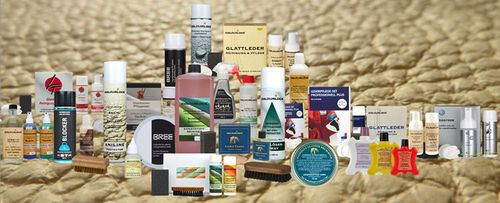
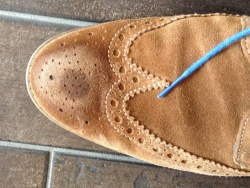
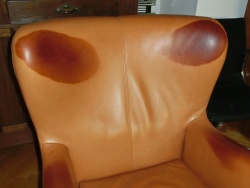
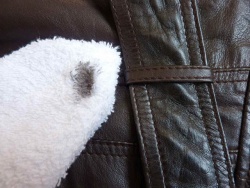
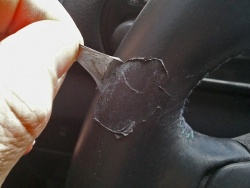
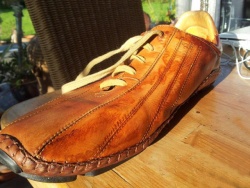
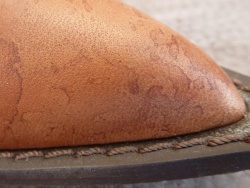
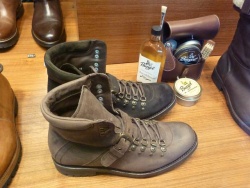
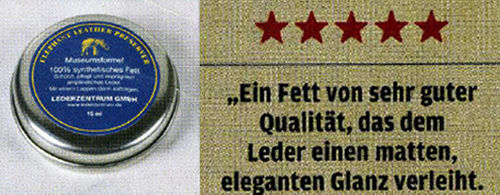

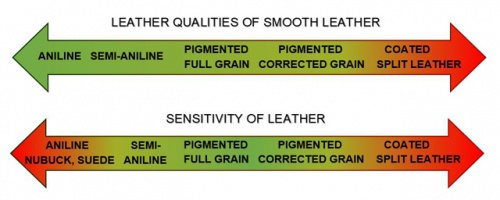

 a kotori web solution
a kotori web solution